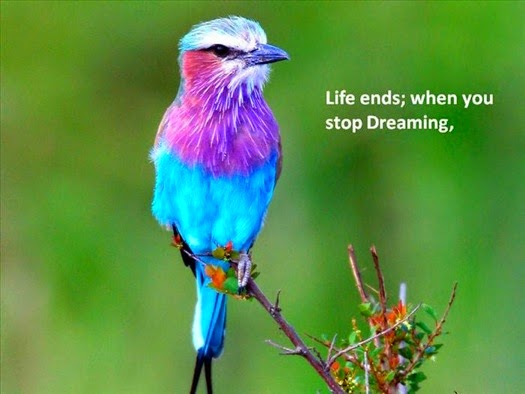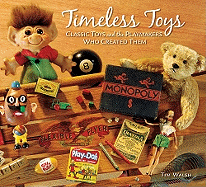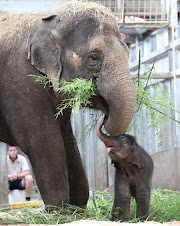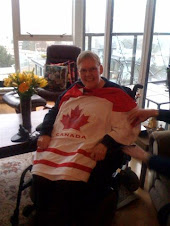From Go Pro

View from my living room
Saturday, December 29, 2012
Tuesday, November 27, 2012
Monday, October 8, 2012
Thursday, October 4, 2012
Thursday, September 27, 2012
Tuesday, September 4, 2012
Friday, August 31, 2012
Saturday, August 25, 2012
Monday, July 23, 2012
Wednesday, July 18, 2012
Tuesday, July 10, 2012
Friday, July 6, 2012
Saturday, June 30, 2012
Monday, June 25, 2012
Friday, June 22, 2012
Saturday, June 16, 2012
Friday, June 15, 2012
Thank You Gloria--it's about time.
Saturday, June 9, 2012
Wednesday, June 6, 2012
Wednesday, May 30, 2012
Sunday, May 27, 2012
Monday, May 21, 2012
Grief has become familiar to me
Friday, May 11, 2012
Thursday, May 3, 2012
Please help me find a cure
Tuesday, May 1, 2012
Sunday, April 29, 2012
Tuesday, April 24, 2012
Tuesday, April 17, 2012
Wednesday, April 11, 2012
Frustration!!!
 I'm getting rather temperamental these days--not part of my usual character. Why? Well, I cannot blow my nose(no diaphragm strength). I cannot lift my arms high enough to scratch my head(shoulder muscles gone). My hands are so weak that I can no longer hold most things or turn pages. I need a bionic arm. Most people cannot understand my ALS accent, so I do not talk much. A nice change for my friends! When I'm tired, my Care Aides have to brush my teeth. I supervise. At night I bite my cheeks because my face muscles are weak and my mouth is so dry. I have also noticed my smile is different. It will eventually disappear. What a shame, it was so beautiful. LOL.
I'm getting rather temperamental these days--not part of my usual character. Why? Well, I cannot blow my nose(no diaphragm strength). I cannot lift my arms high enough to scratch my head(shoulder muscles gone). My hands are so weak that I can no longer hold most things or turn pages. I need a bionic arm. Most people cannot understand my ALS accent, so I do not talk much. A nice change for my friends! When I'm tired, my Care Aides have to brush my teeth. I supervise. At night I bite my cheeks because my face muscles are weak and my mouth is so dry. I have also noticed my smile is different. It will eventually disappear. What a shame, it was so beautiful. LOL. Sunday, April 8, 2012
Saturday, April 7, 2012
Sunday, April 1, 2012
Saturday, March 31, 2012
Silence of Good People

Wednesday, March 28, 2012

Wood Duck 
Aix sponsa
Considered by many to be the most beautiful of North American waterfowl, the wood duck is a perching duck that normally nests in cavities in trees.
Appearance
- Medium sized perching duck
- Breeding male has an iridescent green and white crested head, red eyes, red and white bill, chestnut breast, golden flanks and iridescent back
- Female is a drab version of the male but is considered striking compared to other duck hens
Breeding
- Wood ducks typically pair on the wintering grounds or on the return migration to the breeding grounds
- Arrive on breeding grounds in April
- Nests in preformed tree cavities made by tree diseases, fire scars, lightning, and cavity-making birds like pileated woodpeckers for nest sites and also use artificial nest boxes
- Females lay 7-15 white-tan eggs which they incubate for an average of 30 days
- Male begins to spend less time with female once she begins incubating eggs
- Females stay with young until they have fledged and then leave to undergo a feather moult
Habitat: Wooded wetlands, rivers, streams, lake and river edges.
Tuesday, March 27, 2012
Time not chatter

The best kind of friend is the one you could sit on a porch with, never saying a word, and walk away feeling like that was the best conversation you've had. ~Author Unknown
Sunday, March 25, 2012
Finger Monkeys

Finger Monkeys – Too Small To Be Real?
Ever held a finger monkey before? What’s a finger monkey, you ask. Well, believe it or not, it’s a monkey the size of a human finger. They got their name because of their size and the fact that they cling to your fingers when you try to hold them. The planet’s smallest living primate, finger monkeys are also known as pocket monkeys or tiny lions.
Indigenous to the rain forests of Brazil, Peru, Ecuador, and Colombia (where they possibly export drugs to other finger monkeys), the common finger monkey can grow up to 14 inches. Don’t let a finger monkey’s looks fool you. Its claws are extremely sharp, and when a provoked, these pygmy marmosets can wreak havoc like you’ve never seen.
Thursday, March 22, 2012
Happy Birthday to me
 March 21st was my 66th and I'm hoping for a few more.
March 21st was my 66th and I'm hoping for a few more.Tuesday, March 20, 2012
Cellucci fights ALS, raises fund for research
BOSTON (AP) — Former Republican governors Paul Cellucci and William Weld, once partners in running state government, have joined forces again — this time to raise money for research into ALS, or Lou Gehrig's disease.
Cellucci, 63, disclosed in January 2010 that he had been diagnosed with Amyotrophic lateral sclerosis. The disease attacks the brain and spine, and has no cure.
Yesterday, he appeared at a Boston fundraiser to help announce a $500,000 gift from the biopharmaceutical firm Biogen Idec to the UMass/ALS Champion Fund. Cellucci spearheaded creation of the fund, boosting researchers at the University of Massachusetts Medical Center in Worcester as they work to find a treatment for the disease.
Cellucci, who uses a wheelchair, said he still feels good overall.
"I'm weak in my arms and legs, but everything else is working fine," he said. "I'm fortunate to have a slow case. I hope it stays that way."
At his side was Weld, who hosted the fundraiser and jokingly introduced Cellucci as the "hind legs on the so-called Weld-Cellucci kangaroo ticket. The hind legs were stronger than the front legs."
Cellucci was Weld's lieutenant governor from 1991 until 1997, when he became acting governor upon Weld's resignation. Cellucci was elected governor in 1998 and served until 2000, when he resigned to become U.S. Ambassador to Canada.
Saturday, March 17, 2012
Thursday, March 15, 2012
Coming soon

Completed tracheotomy: |
Sunday, March 11, 2012
Saturday, March 10, 2012
A new image
 I decided I needed a change so after pimping my power chair I went for a few nips and tucks. What do you think? Perhaps the tattoos were overkill.
I decided I needed a change so after pimping my power chair I went for a few nips and tucks. What do you think? Perhaps the tattoos were overkill.Sunday, March 4, 2012
In Memory
 12 years ago on March 4th I lost my best friend to Breast Cancer.
12 years ago on March 4th I lost my best friend to Breast Cancer.Monday, February 27, 2012
Sunday, February 26, 2012
BiPap
 I had my air intake upped to 11 from 9
I had my air intake upped to 11 from 9






























































































































































































